The Superman Fallacy of American Foreign Policy
The 3 mistakes plaguing U.S. foreign policy and destabilizing the world.
August 29th, 2021 was a magnificent day for me. It was my birthday. I’d seen friends the night prior, and my girlfriend and I spent the day meandering around Boston, sampling all the wonderful sights and tastes the city has to offer.
A world away, August 29th, 2021 was a tragedy. That was the day the United States massacred 10 innocent Afghans (7 children) in a drone strike — 10 lives snuffed by a Hellfire missile, leaving simmering bodies and a legacy of grief and loss for those who loved the departed.
How can the United States create the circumstances for a joyous day for myself, a citizen at home, while fostering anguish abroad? The answer is obvious — U.S. foreign policy has lost its way. We’ve mistaken ourselves for an all-powerful, all-just diety.
The Superman Fallacy
When it comes to foreign policy, specifically military interventions, America thinks of itself as Superman. Whenever there’s a discussion of American militarism abroad, we mistakenly take three things as a given:
With enough resources, the U.S. can create its desired outcome,
In the struggle against malicious entities (dictator/insurgency/etc.), the U.S. will be welcomed as liberators, and
The U.S. is always just.
This notion permeates from World War II, where America played a heroic role in the righteous fight against German fascism and Japanese imperialism. And while we (rightfully) celebrate this instance with repetitive Call of Duty games and silly novels titled things like The Iron Chaps of B Company: American Manliness and European Sissiness, we’ve let this superhero-self-image stain our subconsciousness to the point of oversimplifying every conflict onto the 1940’s framework.
While we yearn to once again be the almighty hero swooping from the sky to save the day, the world has changed. Germany is a trusted ally and Japan is hosting skateboarding in the Olympics.
If America wants to help create a stable, safe world, we must identify and remedy the 3 misconceptions skewing our foreign policy.
#1. The Toughest Pill to Swallow
Our first fallacy is assuming the American military can accomplish whatever it sets itself to. While parades and troop-cheer are common around the world, we believe our jingoistic hype to our own detriment. No other nation asks its soldiers to do everything from nation-building, to counterinsurgency, to female education in foreign lands.
Take for example Senator Tom Cotton, who, during the mass panic at the Kabul airport, called on Biden to “destroy every Taliban fighter.” Many labeled this bad faith criticism, but I think it’s sincere. (Asinine, but sincere.)
Cotton spoke for many in the intervention-inclined establishment, though they probably yearned for a more respected mouthpiece. But whether the opinion is voiced by a Senator on Fox News or a Very Serious Person in the New York Times, the belief is the same: if we keep throwing dollars and bodies into the black hole of America’s Afghanistan project, our military will eventually conquer it into a western-style democracy.
But after 20 years of war that got us one Scaramucci* of independent Afghanistan governance, it’s glaringly evident that the American military CAN NOT defeat the Taliban, nor can it build an independent state healthy enough to sustain democracy.
We fought. We lost. To keep fighting is to throw good lives and money after bad.
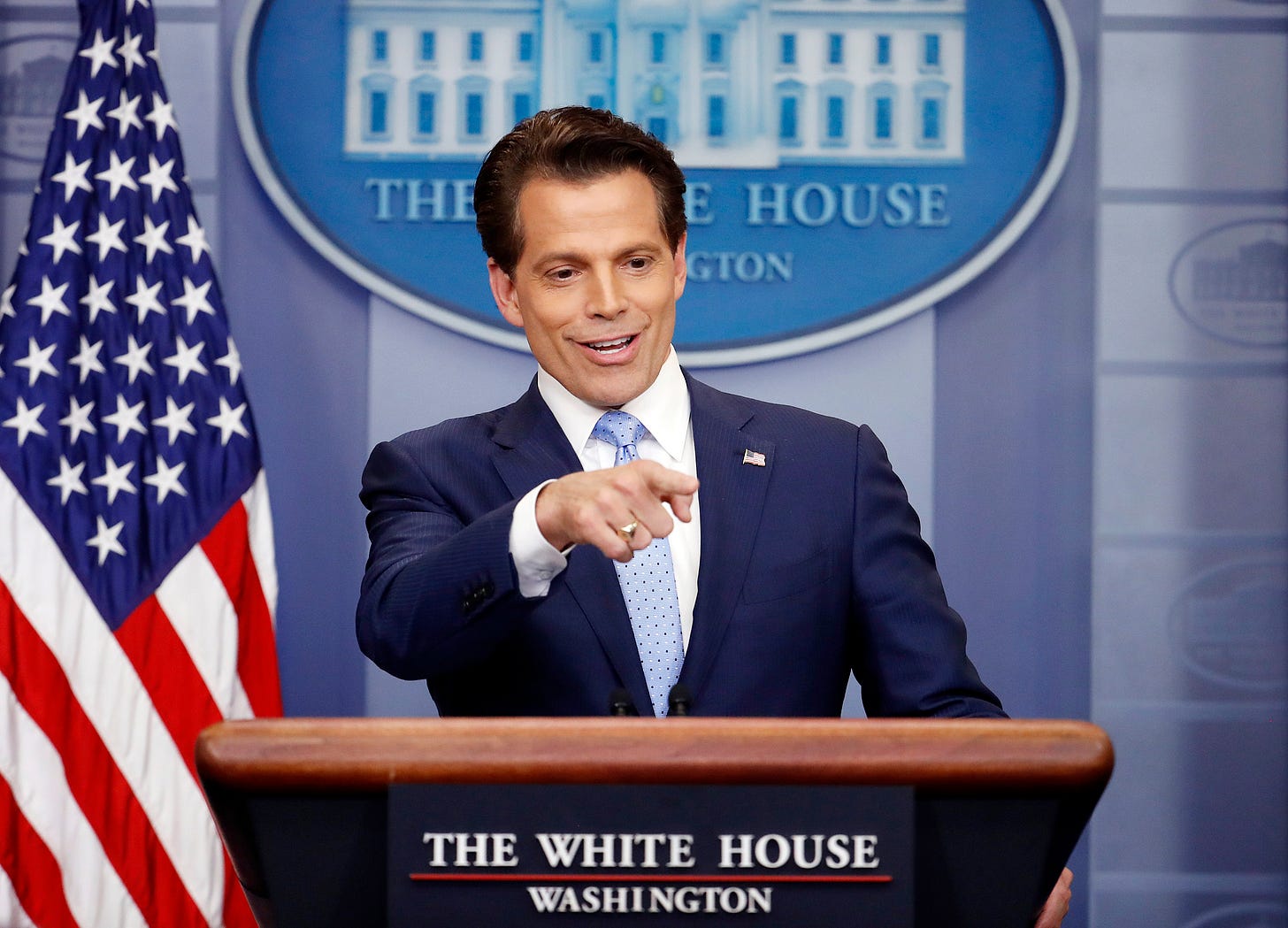
#2. Please Hold Applause Until the End of the Military Occupation
The second fallacy is assuming that if there is an evil presence in a country, say, a Saddam Hussein or a Taliban, everyone except for The Bad Guys will welcome U.S. troops with open arms.
Again, we mistook Afghanistan and Iraq for Europe. WWII was a two-sided conflict between standing nation-states where the belligerents had conquered beyond their borders with mechanized armies. It wasn’t easy to drive the Nazis back to Berlin, but it was straightforward.
Today, the type of wars America fights involve tangled alliances and the exponential growth of our enemy. The longer we stay, the more civilians we kill, creating more enemies, which leads to more fighting, which leads to more civilian deaths, and so on and so forth.
Let’s look at the allied plan in 1940s Europe:
1. Invade France.
2. Kill Nazis.
3. Take Berlin.
Now here’s the plan in 2000s Afghanistan:
1. Invade Afghanistan.
2. Kill Osama Bin Laden.
3. Identify Taliban.
4. Shit, Bin Laden got away.
5. Kill Taliban.
6. Shit, that guy wasn’t Taliban. Pay his family.
7. End the drug trade, but don’t let the opium farmers go broke because then they’ll join the Taliban.
8. Trust ISI.
9. The brothers of the guy we killed in Step 5 are now in the Taliban. Kill them.
10. Okay, never mind. Don’t trust ISI.
11. Install Democracy.
12. Fuck. Opium Farmers are selling drugs to the Taliban.
13. Shit, the election was rigged. Call a Do-Over.
14. Work with boy-raping warlords to promote human rights.
15. Educate Women & Girls.
16. WTF is ISIS doing here?
17. Work with the Taliban to fight ISIS. But don’t forget to kill the Taliban once we’re done.
A chilling result of this problem is the “green-on-blue killings” — heartbreaking situations when Afghan Army Officers killed NATO colleagues. Some instances were attributed to Taliban infiltration, but others seemed to be motivated by disgust for the occupation’s treatment of the Afghan people.
Understanding that the countries America involves itself in aren’t simply “two-sided” will prevent America from being bogged down in “shoot-first-understand-later” situations. We must stop dividing the world into “Good Guys” vs. “Bad Guys.” Doing so only primes us for failure.
#3. The Road to Hell = Good Intentions
Lastly, America must realize that just like every other human society, our moral compass is fallible. We’re just like everyone else — the amalgamation of our vices and virtues.
Just as we’ve liberated oppressed populations, we’ve been the oppressor. From our support of apartheid and autocratic regimes (South Africa, Saudi Arabia), to the war crimes committed by our troops (My Lai Massacre), the U.S. hasn’t always been an agent of justice. The world doesn’t ignore our transgressions simply because we defeated fascism the century prior.
They also see our domestic issues, and sincerely doubt our righteousness when we’ve yet to achieve equality at home. If we’re going to champion our way of life as the pinnacle on the international stage, we must have a socially just society.
And thanks to these domestic and international transgressions, America isn’t understood as the independent, altruistic actor we think we are. We can’t negotiate peace between Israelis and Palestinians because we haven’t been neutral in the conflict. We can’t moderate tensions between Saudis and Iranians because we’ve supported the former and disparaged the latter. We can’t whip international pressure against Iran’s potentially apocalyptic nuclear proliferation because we were the ones that tore up the deal. (BTW, Iran is probably going to get a bomb because of that.)
In these scenarios, the world doesn’t see the U.S. as the adult in the room stepping in to mediate truth and justice — They see us as a corrupt judge, demanding others live by rules we refuse to follow.
Instead of projecting our Superman image and acting like the world thinks of us as The Good Guys, we must understand that people around the globe have valid criticisms of U.S. foreign policy; criticisms that make them reluctant to support or trust us, which hampers our soldiers and diplomats and ultimately leads to a less safe world. For example, more people see the U.S. as a bigger threat to democracy than Russia or China.
Rebuilding this trust will take time, but it can be done. For starters, the U.S. should repeal the American Servicemembers Protection Act (aka “The Hague Invasion Act”) and subject itself to the jurisdiction of the International Criminal Court.
A Better Way
Twenty years after 9/11, America must be honest about which aspects of our foreign policy have and have not worked.
What didn’t work was:
Military invasions
Endless, global war
Torture
Guantanamo Bay
During the Afghanistan withdrawal, 13 U.S. service members (and dozens of Afghans) were killed by ISISK, a group born from the chaos of the Iraq War. There is no greater indictment of the shortcomings of our over-militarized foreign policy than American soldiers dying at the hands of a group caused by American militarism.
Alternatively, what has worked is diplomacy. Before it was scrapped, the JCPOA (Iran Nuclear Deal) was a solid, unified approach that prevented Iran from getting a nuclear weapon. It was successful due to the cooperative nature of the deal, which was a departure from our militaristic modus operandi. Instead of acting like we were an invincible, omnipotent god swooping down from above, the U.S. acted as a partner: we made concessions and worked with friends and foes to achieve the most comprehensive, effective, and important international agreement of the 21st century.
Not only should the Biden administration immediately re-enter the deal, but it should look to it, and the diplomatic mindset that achieved it, as the bedrock of a reborn American foreign policy.
Maybe then we can ground the drones and ensure August 29th is a joyous day for all, not just privileged Americans.
If you liked what you read today, please like, share, and subscribe. Share in the comments how you think we can correct US foreign policy to create a safer world.
What I’m Reading:
Anatol Lieven’s piece on Vindicating Realist Internationalism. (If you liked my piece, you’ll enjoy it.)
I recently subscribed to Problematic Faves, and I suggest you do too! Nicole examines 90's cult classic TV with an enlightened point of view to see what holds up and what's now problematic. Join us mid-season, or start at the beginning with Buffy the Vampire Slayer Episode 1.
Foundation continues to be good.
Bouns: My coworkers are fundraising for Action Against Hunger. Just $1.50 provides life-saving care. Anything helps!




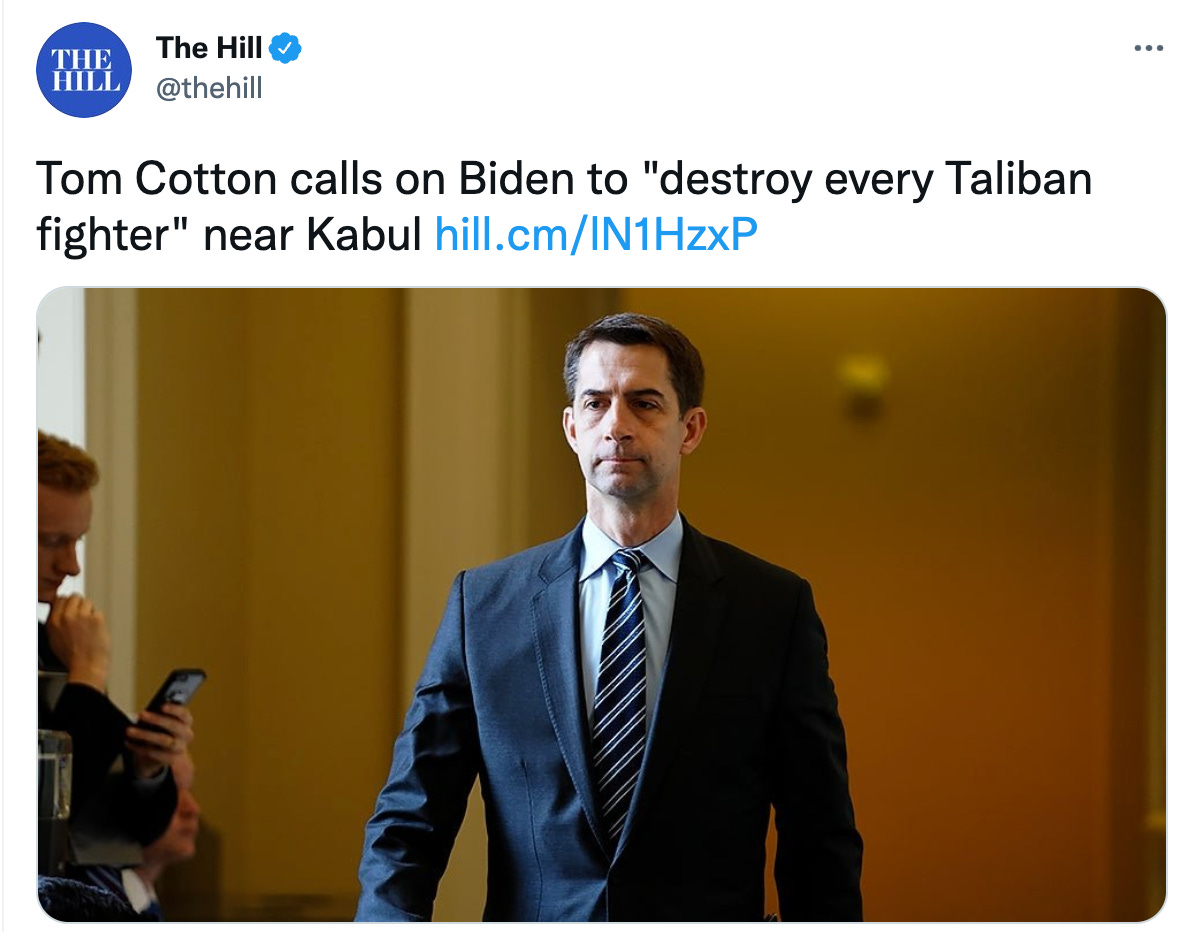
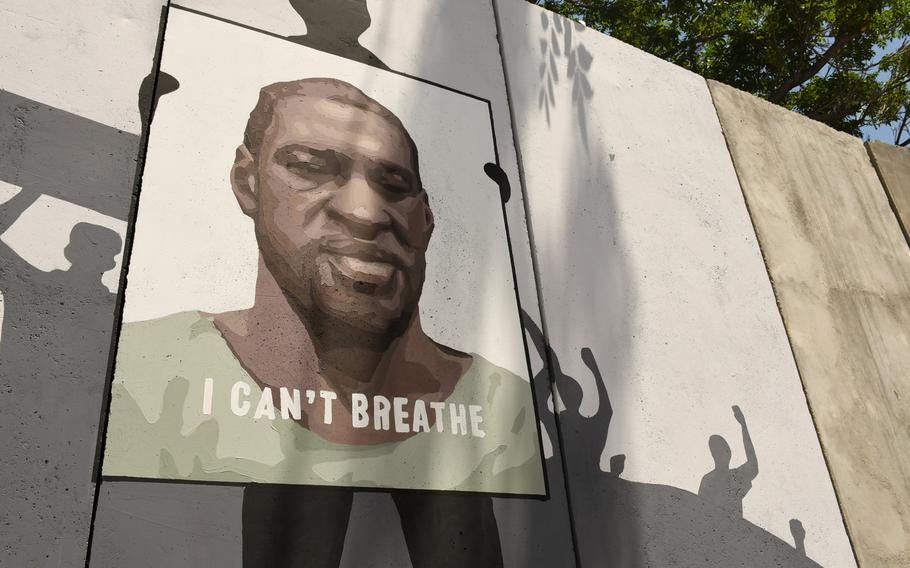
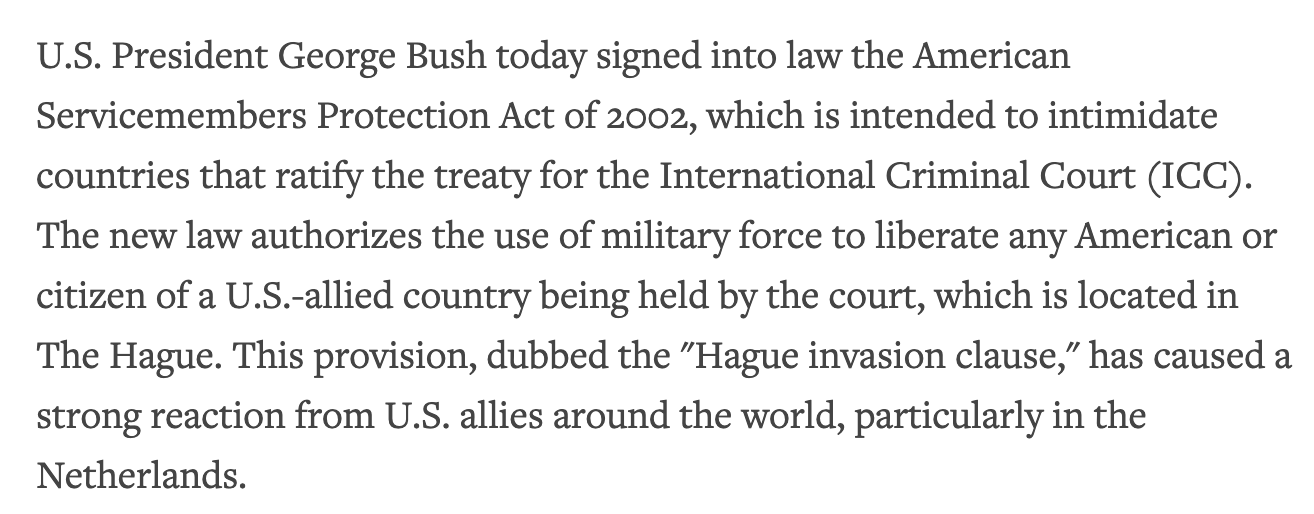
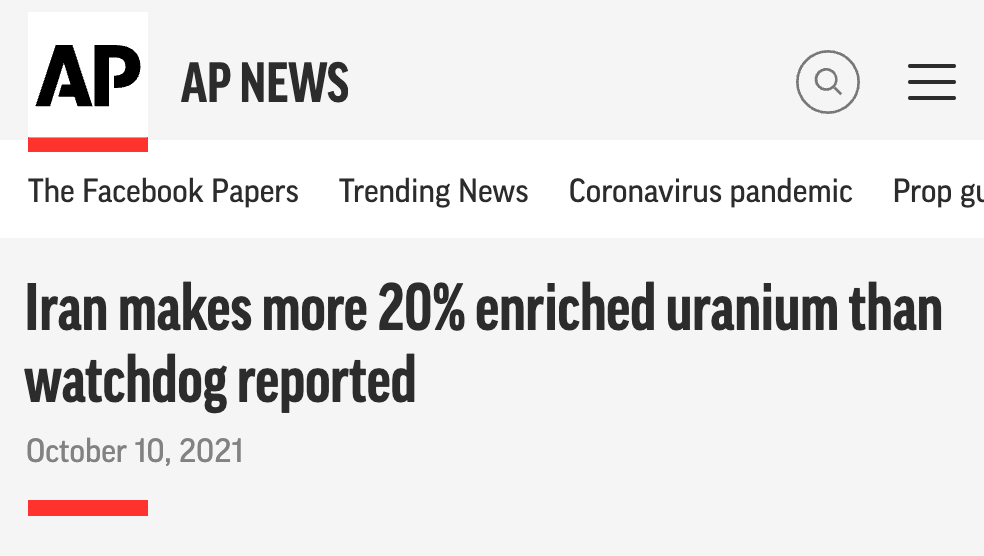
This is so well written, nicely done!